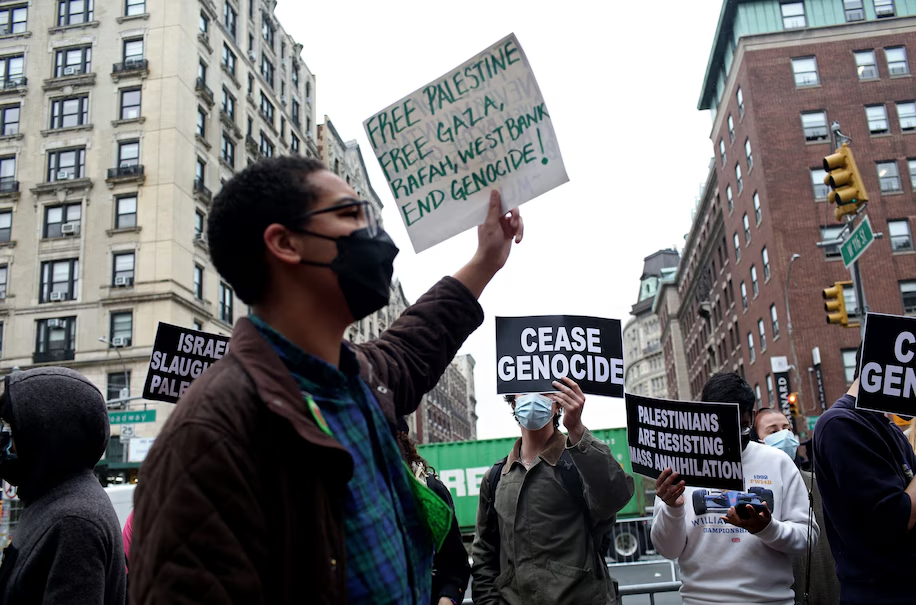Columbia University’s campus has become a flashpoint for activism. Pro-Palestinian students are engaged in a tense standoff with the administration following days of demonstrations, arrests, and suspensions. But far from being silenced, the movement shows no signs of abating.

The protests erupted in response to the ongoing Israeli-Palestinian conflict, particularly the violence in Gaza. Students set up an encampment on the university’s main lawn, demanding a ceasefire and urging Columbia to divest from companies that profit from the Israeli occupation.
The university responded swiftly. After initial attempts to disperse the crowds peacefully, they called in the NYPD. Over 100 students were arrested, and several, including the daughter of a prominent U.S. Congresswoman, were suspended.

But the crackdown backfired. Instead of cowing the movement, it seems to have emboldened it. Students returned to the lawn, vowing to continue their protest. Images of the encampment transformed into a symbol of resistance – a makeshift community persisting despite the threat of disciplinary action.
The situation highlights the deep divides surrounding the Israeli-Palestinian conflict, even on American campuses. Pro-Palestinian activists argue that the university has a moral obligation to take a stand against human rights abuses. They point to Columbia’s investments as tacit support for the Israeli government’s actions.
The university, on the other hand, maintains a commitment to neutrality and upholding campus regulations. Disrupting campus life and occupying university grounds, they argue, undermines the free exchange of ideas.
The conflict raises complex questions. Can universities truly be neutral on issues of human rights? Do protests demanding institutional change necessarily disrupt academic discourse?
The students’ defiance has garnered national attention. Social media is abuzz with commentary, with many expressing solidarity with the protestors. The incident has also reignited discussions about the role of universities in social justice movements.
One thing is clear: this is not over. The pro-Palestinian movement at Columbia shows no signs of surrendering. They are determined to make their voices heard, even if it means facing suspension or arrest. The coming days will be crucial in determining how the university responds and whether a peaceful resolution can be found.
Stay engaged! Here are some ways to follow the story:
- Search online for reputable news sources covering the protests.
- Look for updates from student organizations and activist groups involved.
- Consider attending virtual discussions or webinars on the Israeli-Palestinian conflict.
This is a developing story, and your voice matters. Stay informed, engage in respectful dialogue, and hold institutions accountable for their actions.





